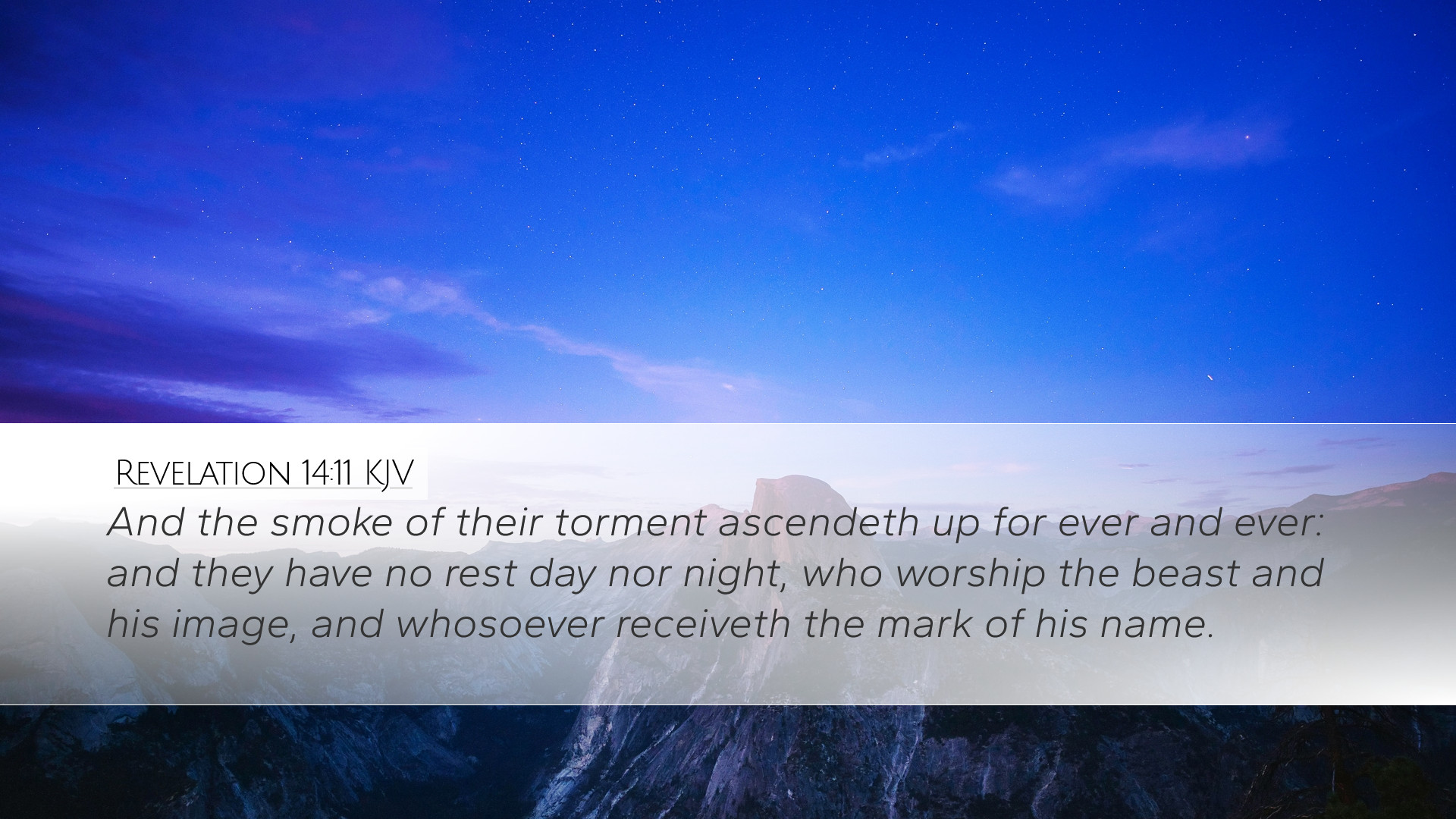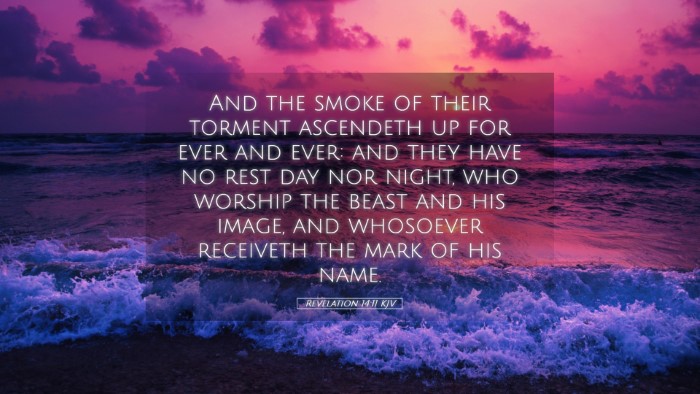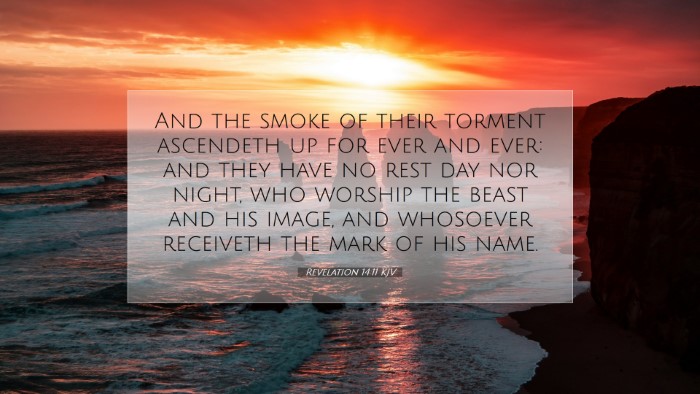Commentary on Revelation 14:11
Verse Context: Revelation 14:11 states, "And the smoke of their torment goes up forever and ever; and they have no rest day or night, these worshippers of the beast and its image, and whoever receives the mark of its name." This verse follows a vivid portrayal of the fate of those who rebelled against God, engaging in idolatry and allegiance to the beast.
Interpretative Insights
Understanding the Imagery
The imagery of smoke rising forever conveys the eternal nature of judgment. Albert Barnes notes that smoke, a product of fire, is a standard representation of destruction and the permanence of punishment. It symbolizes the unceasing suffering of the damned, reminding readers that divine retribution is real and lasting.
The Nature of the Torment
Matthew Henry elaborates on the nature of this torment as a multifaceted reality of separation from God, the source of all joy. This torment is both physical and spiritual, illustrating that true pain culminates from the absence of God’s presence. The phrase "no rest day or night" reinforces the ceaseless experience of anguish faced by the doomed.
Who Are the Tormented?
According to Adam Clarke, the individuals mentioned are those who have chosen to worship the beast, highlighting their deliberate rejection of God's sovereignty. They conformed to the world's sinful systems and, as a result, willingly received the mark of the beast, which signified allegiance to evil over good.
Theological Implications
Eternal Judgment
This verse acts as a stern reminder of the consequences of sin and the reality of eternal punishment. Theologically, it raises important discussions, especially regarding the nature of hell and God's justice. It indicates that God's judgment is not merely punitive but serves as a means to uphold His holiness and righteousness.
Human Free Will and Divine Sovereignty
The choice made by these individuals to worship the beast illustrates the concept of free will in human decisions concerning faith and allegiance. While God is sovereign, He allows humanity the freedom to choose. The outcome of those choices is explored extensively in theology as it relates to accountability before a holy God.
Practical Applications
Warning Against Idolatry
This verse serves as a warning to contemporary believers regarding the subtlety of idolatry in modern life. The 'beast' may manifest in various forms today, such as materialism, power, or cultural norms that oppose God's teachings. Pastors are encouraged to teach congregations about the dangers of assimilating into a culture that may misalign with biblical truths.
Hope Amidst Warning
While Revelation 14:11 focuses on torment, it also prompts reflection on grace and hope found in Jesus Christ. Believers are reminded of the redemptive love of God which calls them away from idolatry and towards a life of holiness and devotion. Clarke emphasizes that, notwithstanding the grim depiction of judgment, the Gospel offers a pathway to avoid such devastation through faith in Christ.
Conclusion
Revelation 14:11 is a poignant verse that encapsulates the dire consequences of worshiping false idols and aligns with the overarching theme of divine justice throughout Scripture. As pastors, students, and scholars meditate on this text, they are encouraged to grapple with the weighty realities of sin, judgment, and ultimately the hope of redemption available through Jesus Christ. The complexities of eternal torment provoke necessary theological reflection while also inviting believers to live in a manner that honors God's call to holiness.


